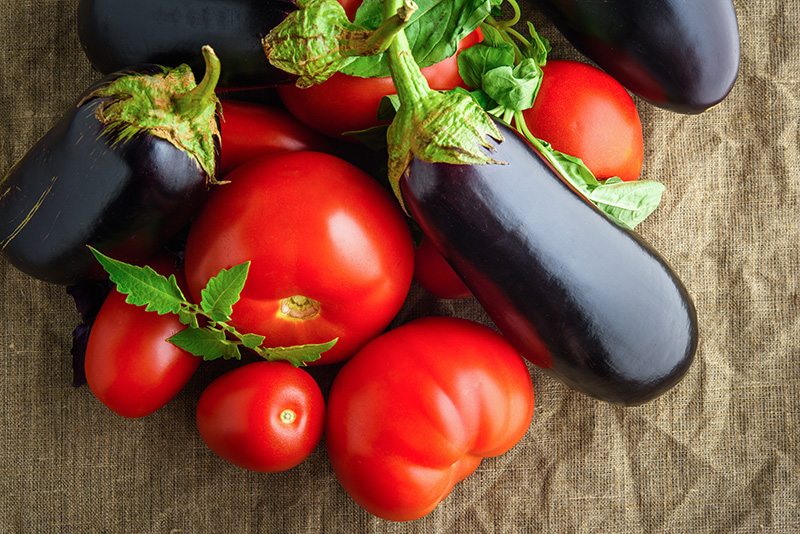It's easy to get answers about health and nutrition! Just send your question by email to [email protected] and Dr. Harlan will respond to selected questions of general interest. Answers will be posted in the Ask Dr. Gourmet newsletter (sign up now!) and archived in the Ask Dr. Gourmet section of the website.
Please note that the Ask Dr. Gourmet feature is restricted to questions regarding food and nutrition. Due to the many questions we receive, not all questions may be answered. For more specific questions about your individual health, please contact your doctor. About Timothy S. Harlan, MD, FACP, CCMS | Terms of Use | Privacy Policy
Ask Dr. Gourmet
Do nightshade plants, like eggplants, tomatoes, and peppers, cause inflammation?
Something you said in an article on peppers especially got my attention: "Like eggplants and tomatoes, peppers are a member of the nightshade family."
I'm seeing a Physical Therapist for help recovering from a partially-torn tendon and chronic ankle sprain, plus sporadic episodes of severe foot to calf muscle cramps. For the muscle cramps, doctors have said to try more calcium, D, potassium, and magnesium. The PT recommends avoiding nightshade plants in my diet, and taking curcumin with black pepper extract, thinking that would reduce inflammation. Why would that make sense? I can't see any inflammation.
Dr. Gourmet Says...

These sorts of remedies are myth and are not really supported by the research.
There have been a few articles that indicate nightshades could be an issue, but these are anecdotal and there is little sound science to back up the claims. The theory is that a chemical in nightshades, solanum, leads to inflammation. Some animal studies have supported this, but the research has not been well replicated and there is no evidence that this is true in humans.
There is, in fact, recent research that looks at the anti-inflammatory properties of solanum and some indication that it may be a good choice for reducing inflammation.
For now, there just is not enough quality research to support a link between nightshades and arthritis or other inflammatory conditions. The fruit of these plants have lots of antioxidants that should, if anything, reduce inflammation.
There is more evidence surrounding use of various capsicums (peppers) and their potential antioxidant and anti-inflammatory processes. Here are some articles as examples of the research that is promising:
Thanks for writing,
Timothy S. Harlan, MD, FACP, CCMS
Dr. Gourmet
PS: The inflammation your physical therapist is concerned about may be inside the joint or related to the tendon tear and not necessarily visible to you.
